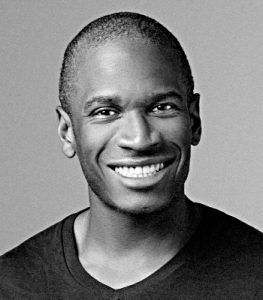Who’s Still Afraid of Bitcoin?

Today’s post is a follow-up to an article I wrote a couple of years ago about a seminar organised by the Spectator entitled Who’s Afraid of Bitcoin.
Contents
Donation box
Since I wrote this article, I’ve added a crypto donation box to the site:
[crypto-donation-box]
Follow-up
I wrote about my experience of the conference here.
A couple of weeks later, the Spectator issued a supplement with articles from the main protagonists.
The supplement was edited by Damian Reilly, who said:
Thanks to bitcoin, everybody seems to have accepted money really is just an idea, one that in its current, government-controlled form might be due an upgrade.
[Because] it’s hard to trace and the transactions made using it are even harder to stop, [bitcoin] is obviously handy for the criminal class. But in a globalised, digital world, it also offers considerable benefits for law-abiding citizens.
In this supplement, we take a look at what the success of bitcoin would really mean.
Let’s see what the participants had to say for themselves.
A word from our sponsors
We’ll start with a couple of articles from / about the sponsors of the event, the Bitcoin Mercantile Exchange (known as BitMex).
- Note that despite the sponsorship, attendance at the seminar cost real money (pounds not Bitcoin) and wasn’t even particularly cheap.
Bitmex is the largest crypto trading platform in the world, and at the time of the conference, the 26th largest exchange of any type.
Daily trading is now between $2.5 bn and $8 bn.
- That puts it ahead of the Australian stock exchange and not far behind the Hong Kong stock exchange.
BitMEX is not a ‘spot market’, where fiat currency (dollars, euros, etc.) can be exchanged for bitcoin.
Rather, it is a derivatives exchange. Users deposit bitcoin and use those deposits to speculate on the price of bitcoin via futures and options contracts
BitMex launched in 2014 as an institutional trading platform, but when that didn’t work out, they had to switch to targeting retail traders.
One of the articles in the supplement is a profile of Sam Reed, one of the co-founders of BitMEX and also the CTO.
- He’s just 29 years old (not jealous, honest).
We democratised bitcoin trading. When we pivoted, we delivered professional-grade, Wall Street-level trading systems to everyone in the crypto universe, something no other exchange had done.
One of the big challenges for BitMex is offering the leverage that retail traders want, without having recourse to margin calls (demands for extra cash).
We don’t have the ability to come after these customers for the money they may owe us. We don’t even interact with bank accounts.
It’s very deliberately not possible for us to do that, and people like that that’s impossible.
But it means we have to use some very sophisticated mathematics and some very fast systems to regulate the order books and guarantee nobody can ever lose more than the collateral they’ve put up.
Gangsters’ paradise?
Arthur Hayes is the other co-founder of BitMEX, and he wrote an article about money laundering.
- He says that property is a much better way of cleaning money than bitcoin is.
The hotspots are Hong Kong and the US.
Thanks to the Common Reporting Standard (CRS), China can request that Hong Kong hand over near-comprehensive financial information about any Chinese national with money there.
But what it can’t discover, thanks to a loophole, is information relating to property assets.
Why would Hong Kong wish to keep its property register hidden from prying Chinese eyes? Well, property is a fantastic generator of economic activity.
But the converse is also true: a property slump causes big problems for a lot of people.
Interestingly, although the CRS is an American idea, the US has not signed up to it.
Anyone could buy a property in Manhattan through a shell company without having to disclose his or her identity, as long as its value was under $3 million.
The same could be done in Brooklyn, Queens, the Bronx or Staten Island for properties worth up to $1.5 million.
And in San Diego, Los Angeles, San Francisco and other parts of California, properties could be purchased anonymously up to a value of $2 million
Any attempt to shift equivalent amounts of cash into bitcoin would involve a bank, and therefore anti-money laundering protocols.
Of course, you might find a dealer who will ask no questions, but the commission you will pay as a result will be extremely aggressive.
Losing 20% of your cash in order to clean it does not make sense when there are better alternatives, like property.
Wildmen
Ross Clark profiled some more of the “wildmen of bitcoin”:
Pioneers of bitcoin are likely to be found in surplus army gear, coveting some obscure corner of the globe as their own little microstate where like-minded people can escape the oppression of the traditional nation-state.
Either that, or they have dreamed up some anarchist future where we all live in small autonomous communities.
If bitcoin idealists are united by one thing it’s a belief that the US — from where many of them hail — is not sufficiently free market or libertarian.
I hadn’t heard of any of the people he mentioned:
- Amir Taaki, founder of bitcoin trading platform Dark Wallet (later used by Islamic State).
- Brock Pierce, chairman of the Bitcoin Foundation.
- Roger Ver
- Vit Jedlicka
Beyond democracy
The libertarian theme was taken further in an article by Patri Friedman, an American activist.
- He is the founder of the nonprofit Seasteading Institute, which “explores the creation of sovereign ocean colonies”.
It’s hard to imagine that a successful blockchain industry will not eventually produce profound political change.
First and most obvious would be the potential for private currencies to directly reduce nation-state revenue (and thus power).
Patri sees the governance methods used to control cryptocurrencies spreading to nations, displacing liberal democracy:
One proposed revision of the democratic republic is to a ‘delegative’ democracy, a system whereby a voter can choose different representatives for different issues, and change them at any time, not merely within the boundaries of an election period.
Superior governance tends to attract both citizens and capital, as the British Empire in the 1800s and the United States in the 1900s both demonstrated.
We should be optimistic that the highest forms of governance have not already been discovered. Governance is a technology, crypto is profitably disrupting it and the resulting innovations are unlikely to stay caged in the virtual world.
Fascinating stuff, but probably not something we need to worry about before the next general election.
All change
Matthew Lynn looked at what might happen if bitcoin became an alternative to the dollar and the euro.
Bitcoin is a decade old and has only had a couple of years in the mainstream. If it continues to grow at its current rate, and if the regulators accept it, then perhaps it really could become the new global currency.
It makes sense for a digital, global economy to have a digital, global means of exchange.
He expects big changes:
Global adoption of bitcoin would make central banks as good as irrelevant. For better or worse, we would have effectively returned to a system much more like the Victorian gold standard.
The multinational corporate banks, too, would lose power. They control the processing of payments throughout the world. Companies can’t trade without putting money through a bank.
He also thinks that globalisation would increase and accelerate.
The problem bitcoin solves
Saifedean Ammous was the star of our previous post, so I’ve saved his article to the end.
- It’s called “The Problem Bitcoin Solves”.
This is apparently a response to a challenge issued by Nobel Prize-winner Paul Krugman in the pages of the New York Times. He wrote:
Governments have occasionally abused the privilege of creating fiat money, but for the most part governments and central banks exercise restraint.
Fiat currencies have underlying value because men with guns say they do. And this means that their value isn’t a bubble that can collapse if people lose faith.
Ammous doesn’t rate fiat so highly:
Zimbabwe and Venezuela are undergoing the ravages of a collapse of government money, while Argentina, Iran and Turkey teeter on the brink. A quarter of a billion humans live in these failing economies.
Hyperinflation has occurred 57 times since the end of the first world war, afflicting several billions of people.
Hyperinflation is unique to government-created money. [It never happened] when economies operated a gold or silver standard.
As we saw last time, the problem with fiat is that it’s too easy (cheap) to produce, which means that in a crisis, governments will produce lots of it, and devalue it.
Between 1960 and 2015, money supply in all countries increased by an average 32% per year.
Bitcoin cannot be used for quantitative easing. You can’t just print more of it when the whim takes you.
Temple of delusion
Outside of the supplement, Martin Vander Weyer addressed the conference in his regular column.
He admitted he was in the minority at the seminar:
I can’t claim the house was evenly divided: mine was the only sceptical voice among a congregation eager to receive the gospel according to Saifedean Ammous.
Martin is not convinced:
Bitcoin is just another online gambling chip, but one that happens to come wrapped in cultish ideology. If its performance becomes less volatile than it has been over the past two years, punters will drift elsewhere in search of excitement.
He quoted Arthur Hayes as evidence:
He said his customers like bitcoin ‘because the price moves a lot’. Asked whether he’s a bitcoin investor himself, he replied: ‘Why bet on the horses when you own the racetrack?’
That’s it for today.
- It’s a strange supplement from the Spectator – part puff-piece for Bitmex (in particular, and bitcoin in general), part day-trip to the libertarian zoo and only partly about the economic implications of crypto.
But it was worth it to revisit Saifedean’s central argument.
- And I enjoyed what Matthew and Martin had to say.
Until next time.
























1 Response
[…] Source link […]